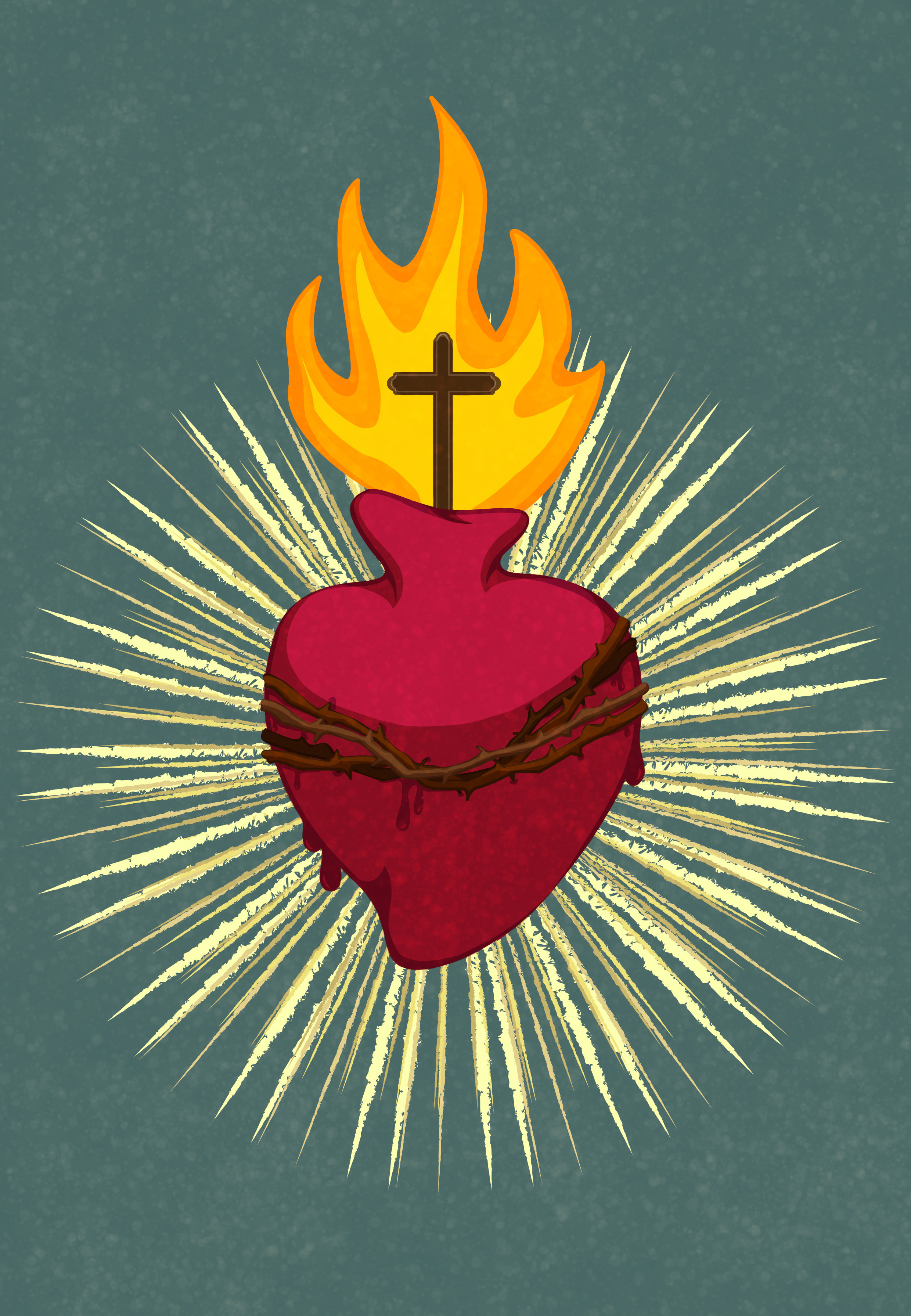Lately I have been reflecting on the will of God and the love of God and how they are not divisive, yet intricately united. Bishop Barron wrote: “Mind you, listening to [God’s] commands is tied closely to love on the part of the one who commands, and since love is nothing but the willing of the good of the other, the obedience that Jesus speaks of is a surrender to the one who massively wants what is best for the surrenderer.” In other words, the One who commands us also happens to love us (i.e. will our good), so when we obey Him, we are actually doing what is in our best interest.
We can be tempted to do what God asks us begrudgingly, thinking it will be laborious or difficult, and sometimes indeed it is. But what we fail to realize is that the very thing we bemoan is the very thing that will bring us the greatest good. God does not ask us to do things because He gets a secret kick out of ordering us around. He asks them for our own good, whether that be apparent here on Earth or in Eternity.
Sometimes fulfilling the will of God necessitates purification. He has a plan for us, and that plan is already in the works, but in order to come to completion, we need to get out of the way. As St. Paul says, we need to decrease, so that Christ can increase in us. Doing God’s will may include many steps and some of those steps may not bring us pleasure, but they are necessary for the eternal good of our souls. God, in His love, wills my good. He does not will my demise.
Today we celebrate the Feast of St. Barnabas. The first reading states that “he was a good man, filled with the Holy Spirit and faith. And a large number of people was added to the Lord.” A few lines before that, it says that when Barnabas arrived at Antioch “and saw the grace of God, he rejoiced and encouraged them all to remain faithful to the Lord in firmness of heart.” Do you notice a common thread here? Why was he a good man? Because he was filled with the Holy Spirit. Why did he rejoice? Because he saw the grace of God. Who did he encourage them to remain faithful to? The Lord. For whom were a large number of people added? For the Lord. Everything points back to God.
Because God loves us so much, He has a will for us, a specific path. This path leads to our highest good, the good of others and ultimately our eternal happiness. Let us ask the intercession of St. Barnabas today to be purified by God’s grace so as to let Him work through us each and every day.
Últimamente he estado reflexionando sobre la voluntad de Dios y el amor de Dios y cómo no son divisivos, sino que están intrínsecamente unidos. El obispo Barron escribió: “Ten en cuenta que escuchar los mandatos [de Dios] está estrechamente vinculado al amor por parte de quien los ordena, y dado que el amor no es otra cosa que querer el bien del otro, la obediencia que Jesús expresa es entregarse a Aquel que desea masivamente lo mejor para el que se entrega”. En otras palabras, Aquel que nos ordena también nos ama (es decir, quiere nuestro bien), así que cuando lo obedecemos, en realidad estamos haciendo lo que es mejor para nosotros mismos.
Podemos sentirnos tentados a hacer lo que Dios nos pide a regañadientes, pensando que será laborioso o difícil, y a veces lo es. Pero no nos damos cuenta de que la cosa que lamentamos es la misma que nos traerá el mayor bien. Dios no nos pide que hagamos cosas porque secretamente le da gusto darnos órdenes. Nos las pide para nuestro propio bien, ya sea que sea evidente aquí en la Tierra o en la Eternidad.
A veces, cumplir la voluntad de Dios requiere purificación. Él tiene un plan para nosotros y ese plan ya está en marcha, pero para que llegue a su plenitud, debemos quitarnos de en medio. Como dice San Pablo, es necesario que yo disminuya para que Cristo crezca en nosotros. Hacer la voluntad de Dios puede incluir muchos pasos y algunos de esos pasos pueden no traernos placer, pero son necesarios para el bien eterno de nuestras almas. Dios, en Su amor, quiere mi bien. No quiere mi destrucción.
Hoy celebramos la fiesta de San Bernabé. La primera lectura dice que “viendo la acción de la gracia de Dios, se alegró mucho; y como era hombre bueno, lleno del Espíritu Santo y de fe, exhortó a todos a que, firmes en su propósito, permanecieran fieles al Señor. Así se ganó para el Señor una gran muchedumbre.” ¿Notan algo en común en esta líneas? ¿Por qué se alegró? Porque vio la gracia de Dios. ¿Por qué era un buen hombre? Porque estaba lleno del Espíritu Santo. ¿A quién los animó a permanecer fieles? Al Señor. ¿Para quién ganó una gran muchedumbre? Para el Señor. Todo apunta a Dios.
Porque Dios nos ama tanto, tiene una voluntad para nosotros, un camino específico. Este camino nos lleva a nuestro mayor bien, al bien de los demás y, en última instancia, a nuestra felicidad eterna. Pidamos hoy la intercesión de san Bernabé para que seamos purificados por la gracia de Dios y le permitamos trabajar a través de nosotros todos los días.
 Tami Urcia is a midwestern gal from a large Catholic family. As a young adulthood she was a missionary in Mexico, where she studied theology and philosophy. After returning stateside bilingual, she gained a variety of work experience, traveled extensively and finished her Bachelor’s Degree at Brescia University. She loves organizing and simplifying things, watching her children play sports, deep conversations with close family and friends and finding unique ways to brighten others’ day with Christ’s love. She works full time at Diocesan in the Software Department and manages the Inspiration Daily reflections. She is also a contributing writer on CatholicMom.com and BlessedIsShe.net.
Tami Urcia is a midwestern gal from a large Catholic family. As a young adulthood she was a missionary in Mexico, where she studied theology and philosophy. After returning stateside bilingual, she gained a variety of work experience, traveled extensively and finished her Bachelor’s Degree at Brescia University. She loves organizing and simplifying things, watching her children play sports, deep conversations with close family and friends and finding unique ways to brighten others’ day with Christ’s love. She works full time at Diocesan in the Software Department and manages the Inspiration Daily reflections. She is also a contributing writer on CatholicMom.com and BlessedIsShe.net.
Feature Image Credit: Angela Koenig, art.diocesan.com/stock-photo/the-sacred-heart-of-jesus-20599/
The views and opinions expressed in the Inspiration Daily blog are solely those of the original authors and contributors. These views and opinions do not necessarily represent those of Diocesan, the Diocesan staff, or other contributors to this blog.

